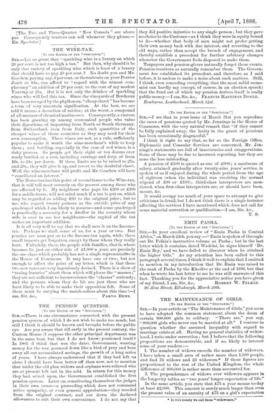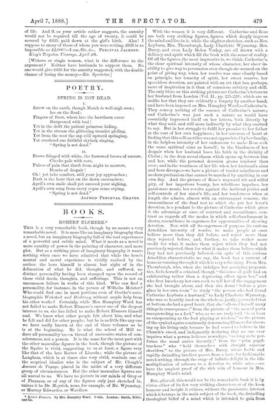THE MAINTENANCE OF GIRLS.
[To THE EDITOR OF THE "SPECTATOR."]
Sin,—In your article on" The Maintenance of Girls," you seem to have adopted the common statement about the doom of certain 800,000 girls to celibacy. "There are," you say, "800,000 girls who never can be married at all." I venture to question whether the assumed inequality with regard to. marriage exists at all. Having no general statistics of widow- hood, I write under correction ; but I believe that the following propositions are demonstrable, and if so, likely to interest some of your readers :-
1. The number of widows exceeds the number of widowers. I have taken a small area of rather more than 1,500 people, and find 76 widows and 23 widowers.* If these figures are proportional to the rest of the United Kingdom, the whole difference of 800,000 is rather more ban accounted for.
2. The preponderance of widows over widowers appears in the longevity tables as "two years' longer expectation of life."
In the same article, you state that 275 a year means to-day at least 22,000. This amount is surely much larger than even the present value of an annuity of 275 on a girl's expectation • In this county we call them "widow-men."
of life. And if, as your article rather suggests, the annuity would not be required till the age of twenty, it could be secured by 2635, paid down at the girl's birth. Alas ! I suppose to many of those of whom you were writing, 2635 is as impossible as 22,000 !—I am, Sir, Sze., PERCIVAL JACKSON.
King's Teigaton Vicarage, April 4th.
[Widows or single women, what is the difference to the argument P Neither have husbands to support them. No one would give 2635 for the annuity suggested, with the double chance of losing the money.—En. Spectator.]



































 Previous page
Previous page